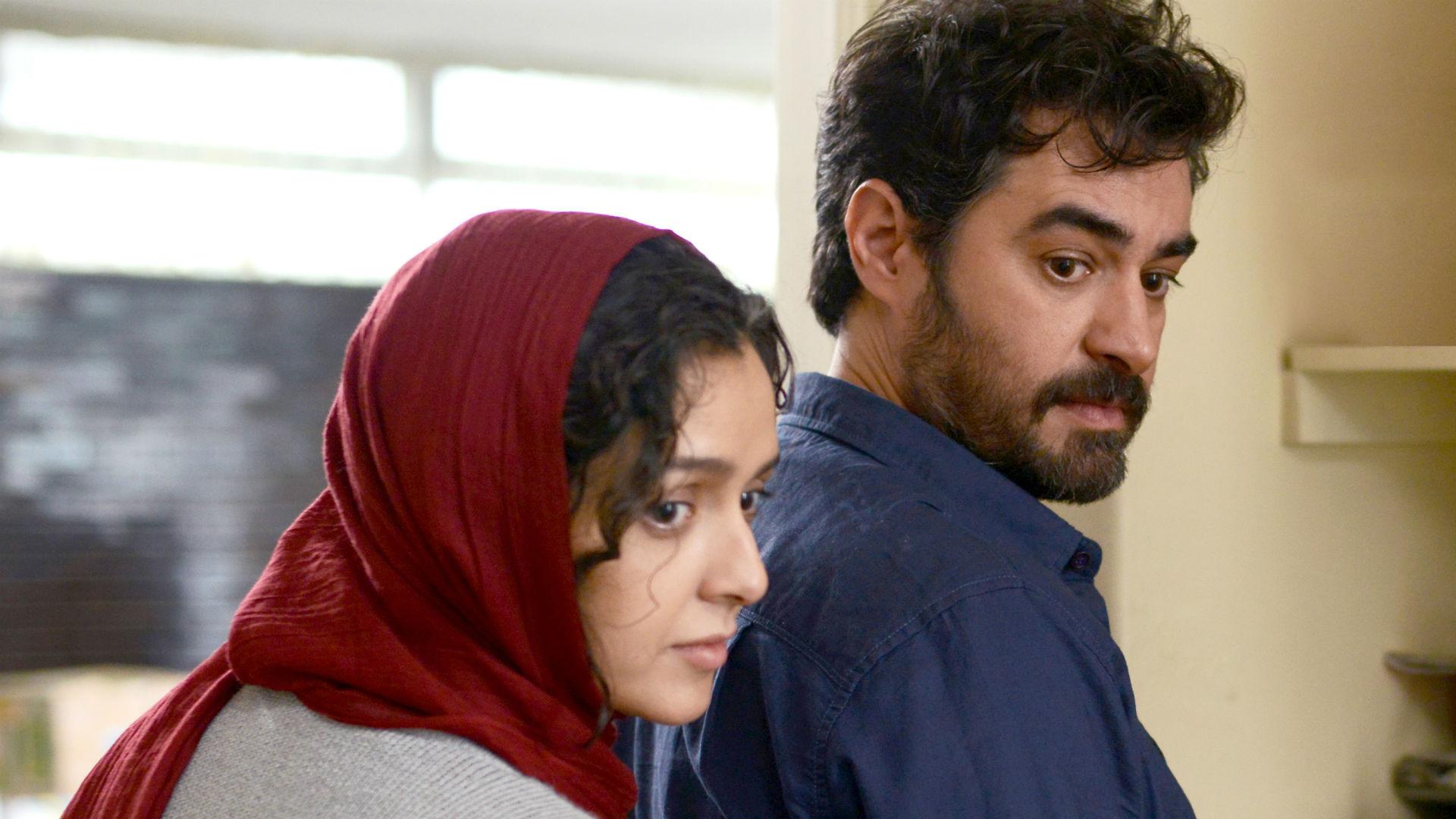
MPAA Rating: PG-13 | Rating: ★★★★½
Release year: 2017
Genre: Drama, Foreign Director: Asghar Farhadi
The Salesman opens with a young couple’s world literally crumbling around them. Framed against still images of a small stage as its lights are turned on, the Tehran apartment building where Rana (Taraneh Alidoosti) and Emad (Shahab Hosseini) live is splitting apart, its foundation shaken by nearby construction. This powerful sequence–one of the most aesthetically interesting and compelling opening scenes I’ve seen in a long time–sets the tone for the rest of the film, a familial parable juxtaposed and interwoven with a theatrical artifice, where the lines between real life and art become blurred. Perhaps in light of recent political and cultural events–namely, the executive order banning the Iranian people who made this film, and the film’s subsequent accolades as the Best Foreign Film winner at the Oscars–The Salesman‘s themes of art’s power to deconstruct cultural narratives take on new significance.
While rehearsing for their roles performing in Arthur Miller’s Death of a Salesman, Emad and Rana draw on a fellow actor’s recently available apartment, as their crumbling building has been condemned. Unaware of the previous tenant’s relationship with the owner and the neighbors, Rana experiences a frightening incident, one which sends the young couple into a downward spiral of grief, trauma, and ultimately vengeance. Farhadi wisely never shows us the incident (and I won’t spoil it here), choosing instead to simply show us the aftermath and allow the audience and the characters to draw conclusions based on the evidence, everything hinted at with a decidedly non-Western indirectness. The Saleman‘s blending and contrast of Western and Eastern cultures is complex and powerful. There are moments here where it felt like this story could take place in any urban center in America, until characters’ decisions or morality reminded me that this is a remarkably different culture from my own. Death of a Salesman is a distinctly American stage play, an exploration and critique of the American dream and gender roles. So it’s no surprise that Farhadi’s characters also experience a crisis which upends their sense of cultural belonging and forces them to wrestle with their masculinity and femininity. Emad especially struggles with his role as a husband, what the proper response should be in such circumstances where he feels helpless, even emasculated. Hosseini gives a stunning, understated performance, carrying the weight of guilt and shame in his eyes and his shoulders. Everyone in the film is excellent, but it’s Hosseini who stays with me–he’s a man churning inside, longing for justice and to make the situation right and whole again, yet unable to fix what’s been broken.
Farhadi is an artisan of empathy. His previous films–A Separation, The Past, About Elly–are all emotionally devastating explorations of everyday people’s relationships and emotions, how they communicate and respond to one another. He’s particularly interested in marital dynamics; every one of these films could be necessary viewing for a young couple in premarital counseling as it raises a smorgasbord of affecting inquiries. Issues of sexuality, reputation, shame, duty, gender roles, expectations, trauma, and sacrificial love are all navigated with intentional care by Farhadi and his characters, opening up the viewers’ to genuinely connect with these characters in ways most filmmakers dream of doing. While The Salesman never hit me emotionally the way the previous three films did, its still a masterpiece in its own right. Perhaps its lack of emotional impact is due to Farhadi’s willingness to branch out, to create a meta-film of sorts in drawing parallels between the stage play being performed and the characters’ everyday lives. They’re all playing roles; sometimes it’s just hard to discern the character they’re becoming.
In his acceptance speech at the Oscars, read by Iranian astronaut and businesswoman Anousheh Ansari, Farhadi said this:
Dividing the world into the “us” and “our enemies” categories creates fear. A deceitful justification for aggression and war. These wars prevent democracy and human rights in countries which have themselves been victims of aggression. Filmmakers can turn their cameras to capture shared human qualities and break stereotypes of various nationalities and religions. They create empathy between us and others. An empathy which we need today more than ever.
The Salesman and Farhadi’s films open up my Western eyes (and heart) to the stories of Iran, a place and culture I may never get to visit, but one which I desperately hope to better understand.
IMDB Listing: http://www.imdb.com/title/tt5186714/
Leave a Reply